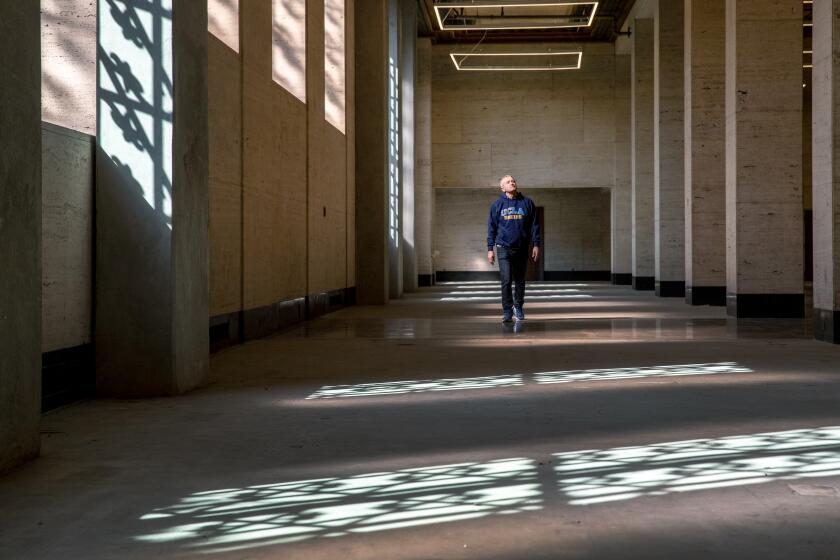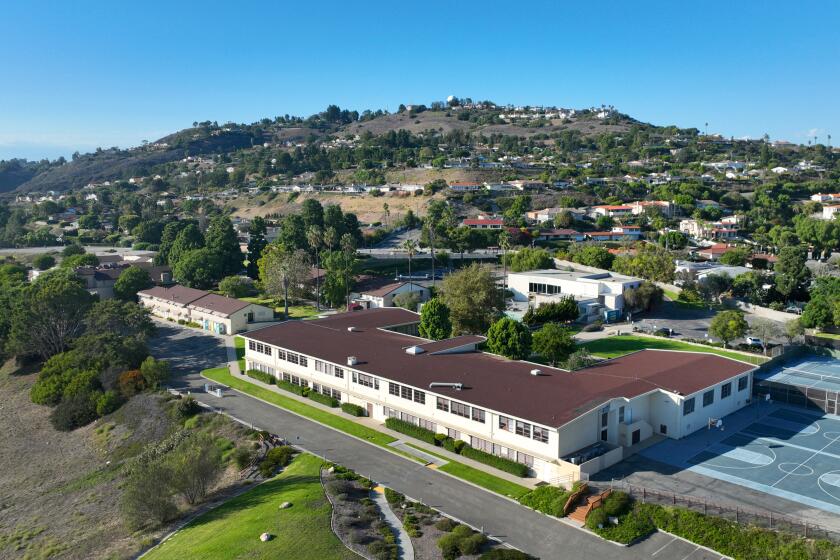UCLA will transform dead Westside mall into major science innovation center
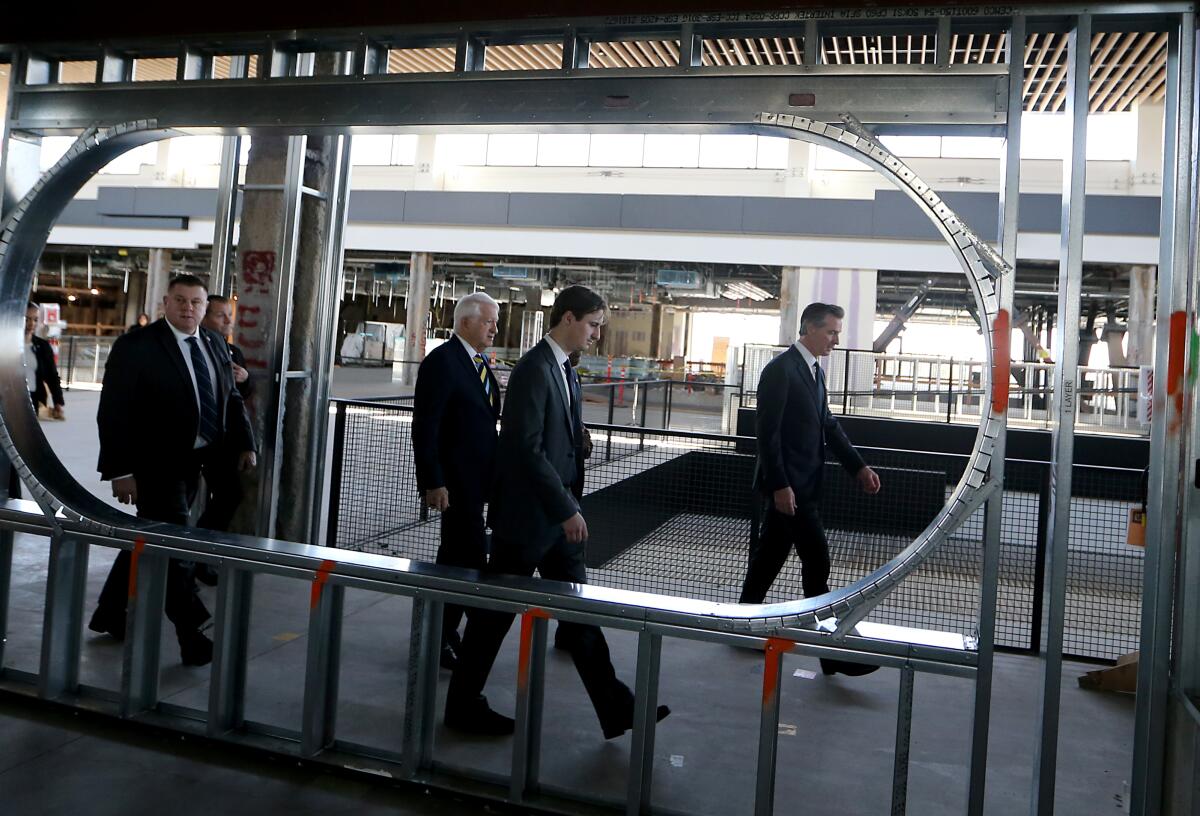
- Share via
The former Westside Pavilion, a long shuttered indoor mall, will be transformed into a UCLA biomedical research center aimed at tackling such towering challenges as curing cancer and preventing global pandemics, officials announced Wednesday.
The sprawling three-story structure will be known as the UCLA Research Park and will house two multidisciplinary centers focusing on immunology and immunotherapy as well as quantum science and engineering.
Establishment of the public-private research center is a coup for Southern California that “will cement California’s global, economic, scientific and technical dominance into the 22nd century and beyond,” said Gov. Gavin Newsom.
The former owners of the mall, Hudson Pacific Properties Inc. and Macerich, said Wednesday that they sold the property to the Regents of the University of California for $700 million.
UCLA announced plans to expand in downtown Los Angeles with the purchase of the historic Trust Building for satellite classes, a move to widen access at the nation’s most popular university and help revitalize the city’s historic core.
By purchasing the former shopping center, UCLA saved several years of potential toil to build such a facility on campus. UCLA is the most-applied-to university in the nation, but its Westwood home is among the smallest of the nine UC undergraduate campuses, leaving it limited room for growth.
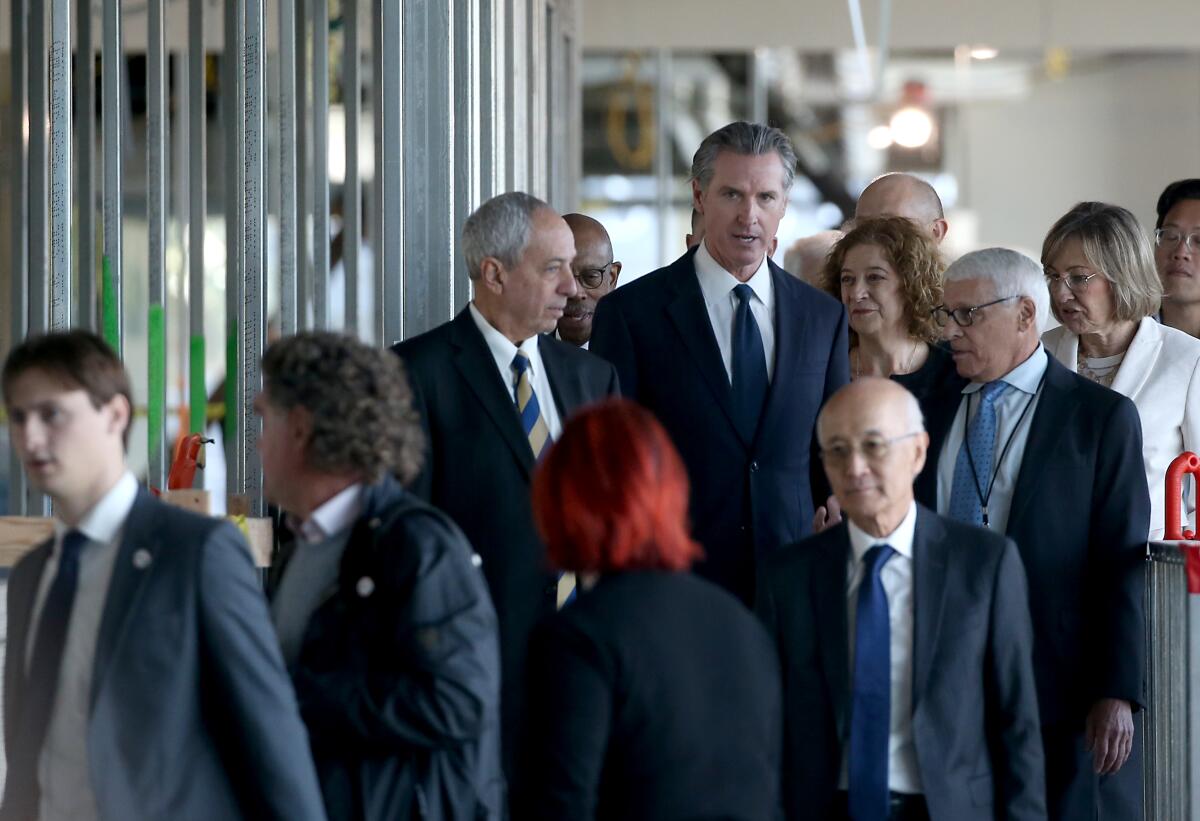
The former mall sits on prime real estate in the heart of the Westside at Pico Boulevard and Overland Avenue, about two miles from the UCLA campus. The mall was owned by commercial developers who spent hundreds of millions of dollars to dramatically remake the old shopping center into an office complex intended to appeal to technology firms, which signed some of the biggest office leases in L.A.’s Silicon Beach before the pandemic.
Google agreed to become the sole tenant and began paying rent last year yet never moved in. The interior is mostly unfinished, but is ready for UCLA to build out to its specifications in a process Newsom said would take about 40 months.
The UCLA Research Park “will serve as a state of the art hub of research and innovation that will bring together academics, corporate partners, government agencies and startups to explore new areas of inquiry and achieve breakthroughs that serve the common good,” UCLA Chancellor Gene Block said.
In addition to flexible work areas, the former mall’s 12-screen multiplex movie theater may be converted into lecture halls or performance spaces offering programming across the arts, humanities, sciences and social sciences, the chancellor’s office said.
One tenant of the research park will be the new California Institute for Immunology and Immunotherapy.
Newsom recounted how two L.A. billionaires approached him at an event to press him for more state investment to into medical research.
“We wouldn’t be here in terms of the state’s commitment had I not gotten pushed back into the corner by Michael Milken at the Milken Institute and Gary Michelson, who said we need to talk to you,” Newsom said.
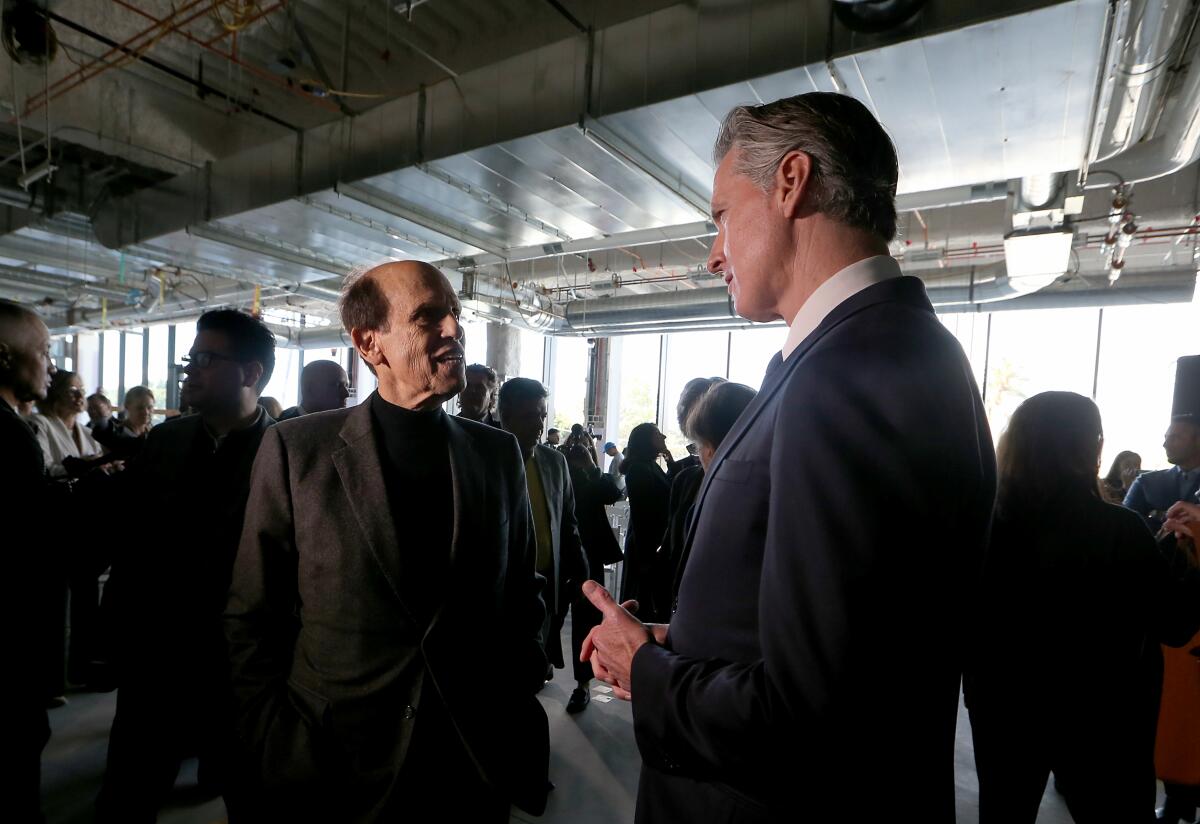
Milken, an investment banker who dominated the junk bond market in the 1980s, pleaded guilty to securities violations in 1990 and was pardoned by President Donald Trump in 2020. His philanthropies have invested in medical research and other causes.
Michelson, a retired orthopedic surgeon and inventor of medical devices, said in the annual report for his philanthropies that he had “co-founded” the California Institute for Immunology and Immunotherapy and had advocated for the state to give $500 million to fund it. The mall project was made possible in part by an intended $500 million investment from the state, of which $200 million has already allocated, a UCLA statement said.
Michelson has talked about his desire to build a “Field of Dreams” research center with 500 scientists or more.
According to a UC Regents document, the institute will operate as an independent nonprofit and be funded by a public-private partnership. UCLA would appoint four of the 11 members of the institute’s board.
The institute will pay UCLA 7.5% of the net revenues generated by the sale of new medicines and other inventions its scientists create, the document said.
Immunology, or the study of the immune system, has produced medicines such as Humira, which generated more than $20 billion in worldwide sales last year. In recent years immunology has been a high-growth area of medicine, in part because of the drugs’ high prices. Analysts say it has now become much more competitive as it has attracted more scientists, companies and research investment.
The former mall will become the new home of UCLA’s Center for Quantum Science and Engineering, which was established in 2018 and brings together academic and industry partners to advance cutting-edge research and development in quantum computing, communication and sensing, the chancellor’s office said.
The purchase of the nearly 700,000-square-foot Westside Pavilion marked the third major acquisition for the public university system in Los Angeles in less than two years.
UCLA, the nation’s most applied-to university, wants to add more students but doesn’t have room. So it’s buying the Marymount California University campus to hold 1,000 more.
Seeking to expand its footprint, UCLA announced last summer it acquired the Art Deco-style Trust Building in downtown Los Angeles and renamed it UCLA Downtown. Just nine months prior, UCLA spent $80 million to buy two other major properties owned by Marymount California University, a small Catholic university that shuttered last year. The purchase included Marymount’s 24.5-acre campus in Rancho Palos Verdes and an 11-acre residential site in nearby San Pedro.
Designed by prominent 20th century mall architect Jon Jerde, the Westside Pavilion was both hailed and reviled by locals who saw it as commercializing their community when it opened in the 1980s. The three-story mall buzzed with shoppers. But decades later the rise of e-commerce and changing consumer tastes helped bring a slow death that was hitting brightly lit indoor shopping centers across the country.
Google signed a 14-year lease in 2019 and had plans to build out a massive campus there. Then COVID hit. Those ambitions were never realized amid a crash in the office market, and more recently an overall pullback of tech companies on real estate expansions and rising interest rates.
Earlier this year, Alphabet Inc., Google’s parent company, announced it would cut 12,000 jobs, or 6% of its workforce, amid “a different economic reality.”
More to Read
Sign up for Essential California
The most important California stories and recommendations in your inbox every morning.
You may occasionally receive promotional content from the Los Angeles Times.


